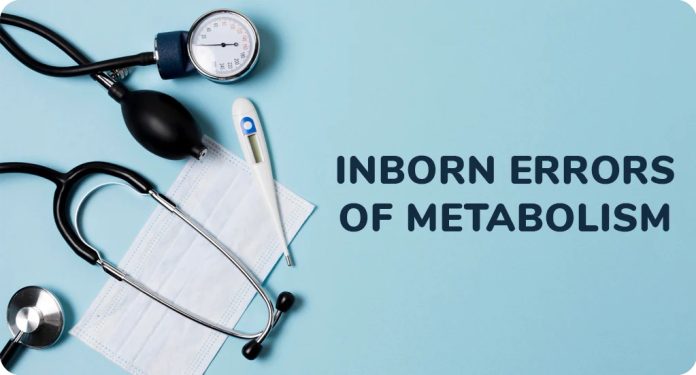Amino acids are the building blocks of proteins and play critical roles in various metabolic processes. The body utilizes amino acids not only for protein synthesis but also for the production of hormones, neurotransmitters, and other vital biomolecules. However, disruptions in the metabolism of amino acids can lead to a range of genetic disorders known as inborn errors of amino acid metabolism. These conditions arise from mutations in the genes responsible for enzymes that facilitate the breakdown, synthesis, or transport of amino acids. This article will delve into the biochemical basis of inborn errors of amino acid metabolism, their classifications, symptoms, diagnosis, and management strategies.
Understanding Amino Acid Metabolism
Amino acid metabolism refers to the biochemical processes by which the body synthesizes, utilizes, and breaks down amino acids. The two primary categories of amino acids are essential and non-essential amino acids. Essential amino acids cannot be synthesized by the body and must be obtained through diet, while non-essential amino acids can be produced endogenously.
The metabolism of amino acids involves various pathways, including:
- Transamination: The process of transferring an amino group from one amino acid to a keto acid, forming a new amino acid and a new keto acid.
- Deamination: The removal of an amino group from an amino acid, resulting in the formation of ammonia and a corresponding alpha-keto acid.
- Urea Cycle: A series of biochemical reactions that convert ammonia, a toxic byproduct of amino acid metabolism, into urea for excretion.
- Synthesis of Non-Essential Amino Acids: Various pathways allow the body to synthesize non-essential amino acids from intermediates of carbohydrate and fat metabolism.
What Are Inborn Errors of Amino Acid Metabolism?
Inborn errors of amino acid metabolism are genetic disorders caused by mutations in genes encoding enzymes involved in amino acid metabolism. These conditions can lead to the accumulation of toxic metabolites or the deficiency of essential products. There are several types of inborn errors of amino acid metabolism, each associated with specific biochemical defects:
- Phenylketonuria (PKU): Caused by a deficiency of the enzyme phenylalanine hydroxylase, which converts phenylalanine to tyrosine. Individuals with PKU cannot metabolize phenylalanine, leading to its accumulation, which can cause intellectual disabilities and other neurological issues if untreated. Management involves a strict low-phenylalanine diet.
- Maple Syrup Urine Disease (MSUD): This disorder results from deficiencies in the branched-chain alpha-keto acid dehydrogenase complex, which is responsible for the metabolism of the branched-chain amino acids (leucine, isoleucine, and valine). Accumulation of these amino acids can lead to neurological damage and developmental delays. Treatment includes dietary restriction of these amino acids.
- Tyrosinemia: This condition arises from defects in enzymes involved in the breakdown of tyrosine, leading to the accumulation of toxic metabolites. Depending on the type (Type I, II, or III), symptoms may include liver dysfunction, renal complications, and neurological issues. Treatment may involve dietary restrictions and medications to manage symptoms.
- Homocystinuria: This disorder results from deficiencies in cystathionine beta-synthase, leading to the accumulation of homocysteine. Symptoms can include developmental delays, cardiovascular problems, and skeletal abnormalities. Treatment may involve dietary adjustments, supplementation with vitamins B6, B12, and folate, and lifestyle modifications.
- Citrullinemia: Caused by a deficiency in the enzyme argininosuccinate synthetase, this disorder results in elevated levels of citrulline and ammonia, leading to neurological complications. Treatment involves dietary management and ammonia scavengers.
Biochemical Basis of Inborn Errors of Amino Acid Metabolism
The biochemical basis of these disorders is rooted in the specific enzyme deficiencies that disrupt normal metabolic pathways. These deficiencies can occur due to various mechanisms:
- Enzyme Deficiency: Mutations in genes coding for metabolic enzymes can lead to reduced activity or complete loss of function. This deficiency impairs the conversion of substrates into products, resulting in the accumulation of substrates and the depletion of downstream metabolites.
- Altered Affinity: Some mutations may affect the enzyme’s affinity for its substrate, leading to inefficient catalysis and altered metabolic flux.
- Co-factor Requirements: Certain enzymes require co-factors (such as vitamins) for proper function. Deficiencies in these co-factors can lead to reduced enzyme activity and subsequent metabolic disturbances.
Symptoms and Diagnosis
The symptoms of inborn errors of amino acid metabolism can vary widely based on the specific disorder and the age of onset. Common symptoms may include:
- Neurological deficits
- Developmental delays
- Failure to thrive
- Abnormal behavior
- Vomiting
- Lethargy
Diagnosis typically involves a combination of clinical evaluation, biochemical testing, and genetic analysis. Newborn screening programs in many countries include tests for specific amino acids and their metabolites, allowing for early detection and management of these disorders.
Management Strategies
Management of inborn errors of amino acid metabolism typically involves dietary modifications to restrict the intake of the problematic amino acids and supplement essential nutrients. In some cases, medications that promote the excretion of toxic metabolites or enhance metabolic pathways may also be utilized.
- Dietary Management: Patients are often placed on specialized diets that limit specific amino acids while ensuring adequate nutrition. For instance, individuals with PKU must avoid high-protein foods, while those with MSUD must limit branched-chain amino acids.
- Nutritional Supplements: Patients may require supplementation with vitamins or other nutrients that may be deficient due to dietary restrictions or impaired metabolism.
- Monitoring and Support: Regular monitoring of amino acid levels and overall health is essential. Multidisciplinary support from healthcare professionals, including dietitians and genetic counselors, is crucial for optimal management.
Inborn errors of amino acid metabolism represent a diverse group of genetic disorders characterized by specific enzyme deficiencies that disrupt normal metabolic processes. Understanding the biochemical basis of these disorders is critical for early diagnosis and effective management. With appropriate dietary interventions and medical care, individuals with these conditions can lead healthier lives and mitigate the risks associated with amino acid metabolism disorders. Continuous research and advancements in genetic therapies hold promise for improving outcomes for those affected by inborn errors of amino acid metabolism in the future.















